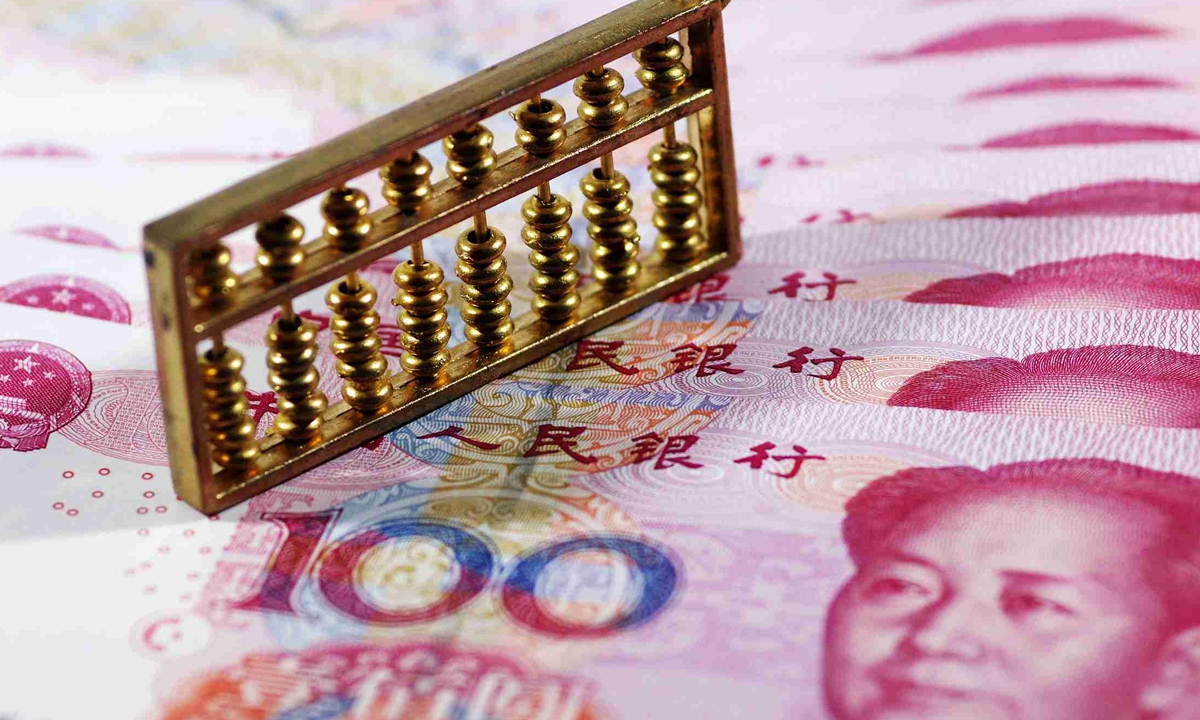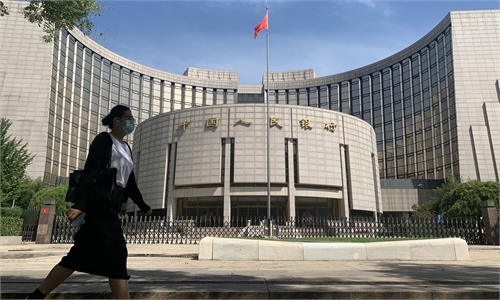Exchange rate of yuan against dollar is not sole indicator of the yuan’s value: official

Chinese yuan Photo:VCG
The exchange rate of the yuan against the US dollar is important, but it is not the sole indicator of the yuan's value, an official of the People's Bank of China (PBC) told a press conference on Wednesday in response to questions related to the yuan's recent weakening against the greenback.
Lately, the yuan has outperformed other non-dollar currencies, which reflects the stable expectations for the Chinese economy, experts said.
Zou Lan, director-general of the Monetary Policy Department of the PBC, said that while the yuan-dollar exchange rate is closely watched by the market, the yuan's exchange rate against a basket of currencies can better reflect changes in the yuan's value.
Since trade and investment flows involve multiple countries and currencies, changes in the yuan against a basket of currencies more comprehensively reflect the impact of exchange rates on trade, investment and the international balance of payments, Zou said.
The official noted that since mid-July, the yuan has weakened against the dollar due to the strengthening of the US Dollar Index. However, the yuan has maintained a stable and upward trend against a basket of global currencies.
The China Foreign Exchange Trade System index, which includes a basket of 24 currencies representing 60 percent of China's foreign trade, finished at 98.51 on September 15, up 1.8 percent from the end of June.
The yuan has maintained a strengthening trend against major non-US currencies, market data showed. According to Wind, since September 15, the yuan has appreciated by 1.2 percent against the euro, 1 percent against the yen and 2.52 percent against the pound.
Zhou Maohua, an economist from China Everbright Bank, told the Global Times on Wednesday that the yuan's exchange rate against a basket of currencies can better reflect China's global economic and trade relations and provide a more objective gauge of the yuan's value.
As China's economic and trade relations with other economies become increasingly diversified, the exchange rate against a basket of currencies will inevitably attract more attention, Zhou said.
The PBC emphasized that as pro-growth policies continue to take effect and China's economy continues to improve, there is a solid foundation for the yuan to remain at stable, reasonable and balanced levels. It also said that Chinese authorities have the capacity, confidence and conditions to keep the nation's foreign exchange market operating at a stable level.
The central bank and the State Administration of Foreign Exchange will resolutely deal with any activity that disrupts market order and firmly guard against the risk of any overshooting of the exchange rate.
In recent months, the yuan has experienced short-term fluctuations in the market, but considering improvements in the domestic and international environments, the yuan's exchange rate is expected to remain at a reasonable and balanced level, Zhou said.
Since the beginning of this year, the PBC has strengthened countercyclical adjustments to consolidate the improvement in the country's overall economic development.
On September 14, the PBC announced another 0.25 percentage point reduction in the reserve requirement ratio following a March cut. The latest cut would inject more than 500 billion yuan ($68.7 billion) in medium- and long-term liquidity into the economy, which will help boost market confidence.
In August, macroeconomic and financial data showed better-than-expected improvements as China's monetary policy took effect, Zhou said.
The Consumer Price Index turned positive in August while the decline in the Producer Price Index narrowed. In August, money supply and total social financing maintained year-on-year growth of around 10 percent.
Additionally, with the US nearing the end of a long rate hike cycle, further appreciation of the US dollar may be limited, Zhou added.
The US Federal Reserve will announce its interest rate decision on Wednesday local time and it is widely expected to avoid further interest-rate hikes this year.

